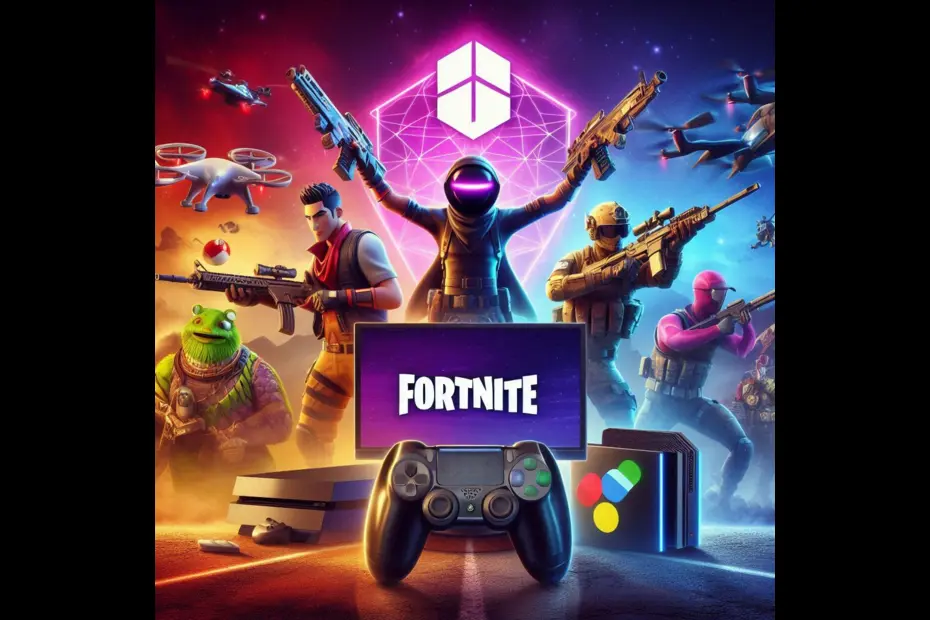Cross-platform gaming, which allows gamers from different gaming platforms to play together, has become a prominent trend in the gaming business. It provides tremendous opportunities but also presents its own set of obstacles. In this blog, we’ll look at the advantages and disadvantages of cross-platform gaming, as well as what it implies for the future of the gaming industry.
The Rise of Cross-Platform Gaming
Cross-platform gaming has risen significantly, thanks to popular titles like “Fortnite,” “Minecraft,” and “Call of Duty: Warzone.” These games have demonstrated that players value the ability to connect and compete with friends regardless of the device they use. The desire for cross-platform play reflects an industry-wide move toward inclusion and player convenience.
Opportunities in Cross-Platform Gaming
1. Wider Player Base
Cross-platform gaming enables games to sustain larger, more active player bases by bringing together users from several platforms. This leads to faster matchmaking and more varied gameplay experiences.
2. Enhanced Social Connectivity
Players can connect with family and friends who may have different gaming platforms. This social aspect improves the game experience and promotes a more inclusive gaming community.
3. Longevity of Games
Games that offer cross-platform play typically have longer lifespans. With a continual infusion of new players from diverse platforms, games may remain relevant and alive for longer periods of time.
4. Economic Benefits
For developers and publishers, cross-platform play can boost sales and revenue. Players are more willing to buy games that their friends can play on many systems, which expands the market.
Challenges of Cross-Platform Gaming
1. Technical Hurdles
Ensuring compatibility between various systems (such as consoles, PCs, and mobile devices) is a huge technical challenge. Each platform has distinct hardware specs, operating systems, and network infrastructures, making seamless integration difficult.
2. Fair Play and Balance
Balancing gaming across many platforms can be challenging. For example, PC gamers with a mouse and keyboard may have a competitive advantage over console players with a gaming controller. Developers must develop solutions to level the playing field.
3. Security and Cheating
Cross-platform play may expose games to security flaws and cheating. Developers must incorporate strong anti-cheat mechanisms and security measures to maintain the game’s integrity and ensure a fair experience for all players.
4. Business and Licensing Issues
Negotiating agreements between several platform owners can be difficult. Cross-platform integration might be complicated by the policies and business interests of companies such as Sony, Microsoft, and Nintendo.
Case Studies of Cross-Platform Success
Fortnite: Epic Games’ “Fortnite” is one of the most popular cross-platform games, allowing players on PlayStation, Xbox, Nintendo Switch, PC, and mobile devices to collaborate. This feature has greatly contributed to the game’s immense popularity and longevity.
Minecraft: Another famous example is “Minecraft,” which allows for cross-platform play across consoles, PCs, and smartphones. This has contributed to its continued success as one of the best-selling games of all time.
Call of Duty: Warzone: “Call of Duty: Warzone” supports cross-platform play, which improves the competitive scene and ensures a big player base across multiple devices. This feature has contributed significantly to its success and popularity in the battle royale genre.
The Future of Cross-Platform Gaming
The future of cross-platform gaming is positive. Many of today’s technical issues are expected to be overcome as technology advances. Increased communication between platform owners and game creators will also help to resolve business and licensing difficulties. The increased desire for cross-platform play indicates that more games will implement this functionality, resulting in a more connected and inclusive gaming community.
Conclusion
Cross-platform gaming offers both excellent opportunities and challenging challenges. It has the ability to bring players together in unprecedented ways, resulting in larger, more active communities and longer game lifespans. To fully achieve this promise, developers and platform owners must overcome technological, security, and financial challenges. As the industry evolves, cross-platform play is poised to become an essential component of the gaming landscape, providing a more connected future for gamers everywhere.
I hope this blog post is helpful and informative! Please let me know if you have any other questions regarding this blog. This blog was made with proper research and with the help of ChatGPT.
Thankyou for reading, do visit our other contents too and signup for more amazing contents coming for you, yes you for you only. Knowaboutgames.com
